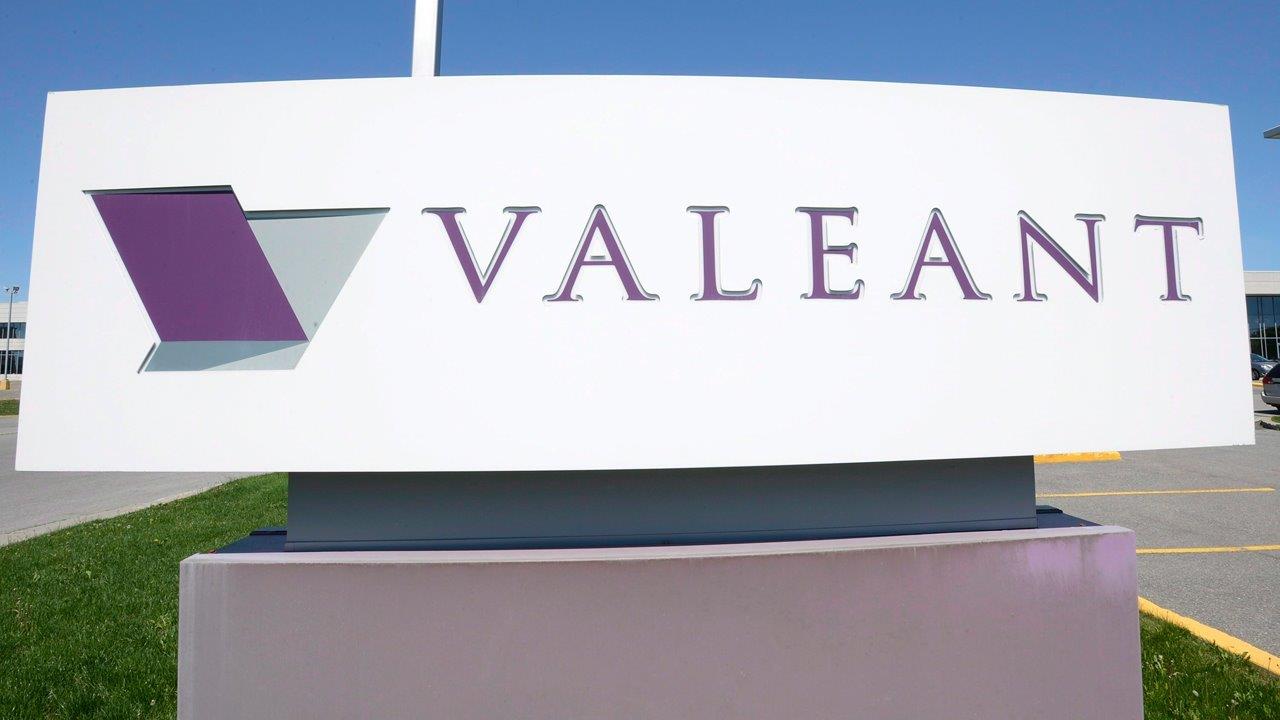Valeant Eyes Shedding Key Assets
In an effort to pay down its massive debt and repair its reputation, bankers say troubled pharmaceutical giant Valeant (NYSE:VRX) is “actively discussing” selling one of its crown jewels: Its Bausch & Lomb eye care unit, the FOX Business Network has learned.
Valeant bought Bausch & Lomb in 2013 for $8.7 billion. The purchase was one of its biggest in a series of acquisitions that allowed the company to explode in size during the past eight years and become a Wall Street darling.
Bausch & Lomb, a maker of contact lenses and lens-care products, generates nearly $1.5 billion in yearly revenues, and profits of around $200 million, according to filings.
But intense scrutiny over Valeant’s business model and accounting practices following disclosures about its relationship with the mail-order pharmacy Philidor Rx Services, has crushed Valeant’s stock price, which traded as high as $263 in March. Shares have recently spiked amid a restructuring of the firm’s $31 billion in debt and statements by its largest shareholder, hedge fund manager Bill Ackman, that management changes are likely in the coming weeks.
Ackman has in the past stated that Valeant may spin off at least part of its Bausch and Lomb unit possibly through an initial public offering to generate revenues. Bankers interviewed by FBN say the company is now looking into a possible sale of all or part of the unit-- a move some that could generate as much as $30 billion in revenue. Sources say that executives at the company, though, are undecided about whether even a partial sale makes strategic sense.
“Ackman is playing a major role here in the company’s future,” one investment banker with knowledge of the matter said. “And they are definitely discussing shopping Bausch & Lomb because of his input.”
It’s unclear if Valeant will sell Bausch and Lomb or find other parts of its vast businesses to spin off, these bankers say. One problem the company faces is that amid scrutiny over its drug pricing, revenues have declined at many of its far-flung businesses.
According to a report in the Wall Street Journal, sales are slowing for many of Valeant’s brands including its popular drug Xifaxan.
Bausch & Lomb is considered among Valeant’s most stable brands which means the company could receive a top price as part of a sale or a partial spinoff, but also a decline in revenues over the long haul.
A Valeant spokesman Jared Levy, from the firm Sard Verbinnen, declined to comment on whether Valeant is actively discussing the sale. But he added as of now “Valeant is not pursuing a sale of its Bausch & Lomb business.”
A spokesman for Pershing Square Holdings declined to comment.
Some Wall Street players say, at its current price of around $35, shares of Valeant are a bargain, particularly after the company reached an agreement with creditors to restructure its debt. Ackman, who is now a Valeant board member, recently stated he believes Pershing Square will recoup its stake even as shares have declined 86% since the March high.
While many on Wall Street are not that optimistic, bankers and hedge fund traders believe the company has valuable businesses that can boost its share price once the company’s debt is paid down.
“The restructuring gives the company a path to get its business back in order,” the banker with knowledge of the matter said.
Meanwhile, Ackman continues to tout Valeant’s prospects. During a conference call on Wednesday, he said despite the company’s mistakes, investors would be the ones making a mistake if they dumped their shares.
Prices of Valeant’s bonds have, in recent weeks, fallen into distressed levels, while credit default swaps on the company’s debt spiked considerably, both of which signal market fears of a default. A credit default swap is an insurance policy investors buy when they are worried of a possible default.
But after the Ackman call, shares of Valeant recorded their biggest two-day gain in 20 years; the price of Valeant stock has climbed 40% since the beginning of the week. The restructuring of the company’s debt helped boost shares because many investors believed Valeant might miss some debt payments and fall into default.




















